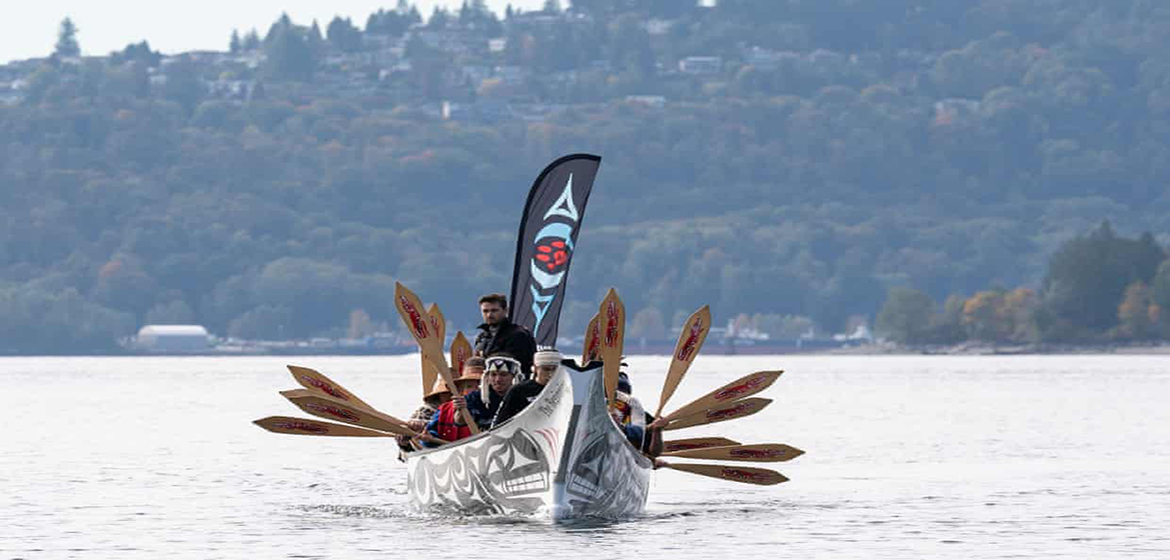New research shows Tsleil-Waututh practices were destroyed during European colonization, and in recent decades wild salmon populations have collapsed
By Leyland Cecco
A First Nations community on Canada’s west coast practiced the sustainable harvest of wild salmon for 1,000 years, before the system was largely destroyed after the arrival of European settlers, a new study has concluded.
The Tsleil-Waututh, an Indigenous community whose traditional territory has been subsumed by the city of Vancouver, were long known to have used large weirs to capture salmon preparing to spawn.
New research shows that the Tsleil-Waututh used sex selection when harvesting spawning salmon, releasing the females to ensure the population would remain healthy for future use.
Archaeologists studied chum salmon bones dating from between 400 BC and AD 1200 from four archeological sites around the Burrard Inlet.
In their research, the authors of the study discovered that salmon bones taken from former village sites were overwhelmingly male, instead of an even mix with females.
“People were harvesting the same sort of fish consistently, probably from the same places, for 1,000 years,” said Jesse Morin, archeologist for the Tsleil-Waututh Nation and an adjunct professor at the University of British Columbia, to the Canadian Press. “Here we are, 150 years later, 150 years’ worth of industrial harvesting, and we’ve really destroyed these resources.”
Large weirs were likely placed in the inlet and then hauled ashore, where community members could select male salmon and set the females free.
“If you take a good number of the males out of the system, the remaining males can still mate with the females to no detriment to the population,” he said. “One male can mate with 10 females and have just as many baby salmon the next year.”
The Tsleil-Waututh weirs were torn down during European colonization, said Morin.
In recent decades, wild salmon populations have collapsed.
, many of which spawn in the region, are considered endangered. All other species of Pacific salmon are in precarious decline. By some estimates, in just 100 years, 75% of sockeye .
The crash of salmon – exacerbated by overfishing, poor watershed management and a changing climate – has significant effects on the region’s ecosystems. The endangered southern resident killer whale , as do grizzly bears in coastal regions.
The Tsleil-Waututh practices highlight the importance of properly managing a fishery as governments scramble to find a way to save the troubled salmon populations. In recent years, members of the Nation have not fished on their traditional territory, despite a treaty right to do so, in order to help rebuild ailing stocks.
Source: The Guardian
Related to SDG 14: Life below water



